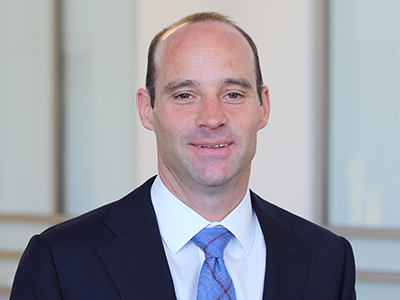Richard “Bo” Manly Adams, Jr., is the Margaret A. Pitts Assistant Professor in the Practice of Theological Bibliography and the Director of Pitts Theology Library at Emory University’s Candler School of Theology.

I teach an annual seminar at Emory University’s Candler School of Theology, entitled “Hacking Ministry: The Work of the Church in the Digital Age.” I attempt not only to help students develop technology skills essential to the work of Christian ministry (web design, podcasting, graphic design, etc.), but also to engender an ability to think critically, theologically, and historically about the influence technology has on religious practices and communities. I have used Wikipedia as an element of the course, teaching students how to make edits and what advantages a crowd-sourced approach to information has over our traditional hierarchical systems of knowledge.
This past year, ever-present conversations about misinformation and the questioning of authority was a perfect reason to expand the use of Wikipedia in my class. With the help of the Wiki Education Dashboard, students progressed through 9 weeks of lessons, learning the technical aspects of creating and editing articles and the best practices of the site and Wikipedia’s fundamental principles. This guided course content taught my students how to use Wikipedia, but perhaps more importantly, the weekly lessons provided content for our conversations in class about information, authority, and bias. What does a neutral point of view mean? Is such an ideal possible? What responsibilities do we, as growing subject matter experts, have to improve the quality of articles on the site?
The culmination of our work together was each student’s editing of an article on a contemporary woman theologian. I curated for the students a list of women theologians whose Wikipedia presence (in my opinion) was not a sufficient reflection of their contributions. I am pleased to report that thanks to my students’ efforts, the record has been improved. Students conducted original research and updated these pages, often doubling or tripling the article length, adding citations, and correcting inaccurate information. The assignment not only provided the opportunity for the students to learn about these influential women, but my students left empowered to continue to edit Wikipedia, to use what they are learning in graduate school to better inform the world. All of this while also helping the world to learn more about these incredible theologians!
Academic rhetoric about Wikipedia is too negative, as we often introduce it only as a source not fit for citing in academic work. Through this exercise, my students learned how and why we can all work to improve this tool, the reference work used far more frequently than anything we have in our libraries. The next time you learn on Wikipedia about figures like Carol A. Newsom or Mitzi J. Smith, you should thank my students for their hard work updating the record, and you should know that you’re not alone in learning from these sites. Hundreds of visitors have benefited from my students work already! I strongly encourage any instructor to consider the Wiki Education Dashboard as a partner in teaching students the skills to edit and the important lesson that we all have a role in correcting disinformation.
Image credits: CandlerStudent92, CC BY-SA 4.0, via Wikimedia Commons; Worldinfrontofthetech, CC BY-SA 4.0, via Wikimedia Commons
